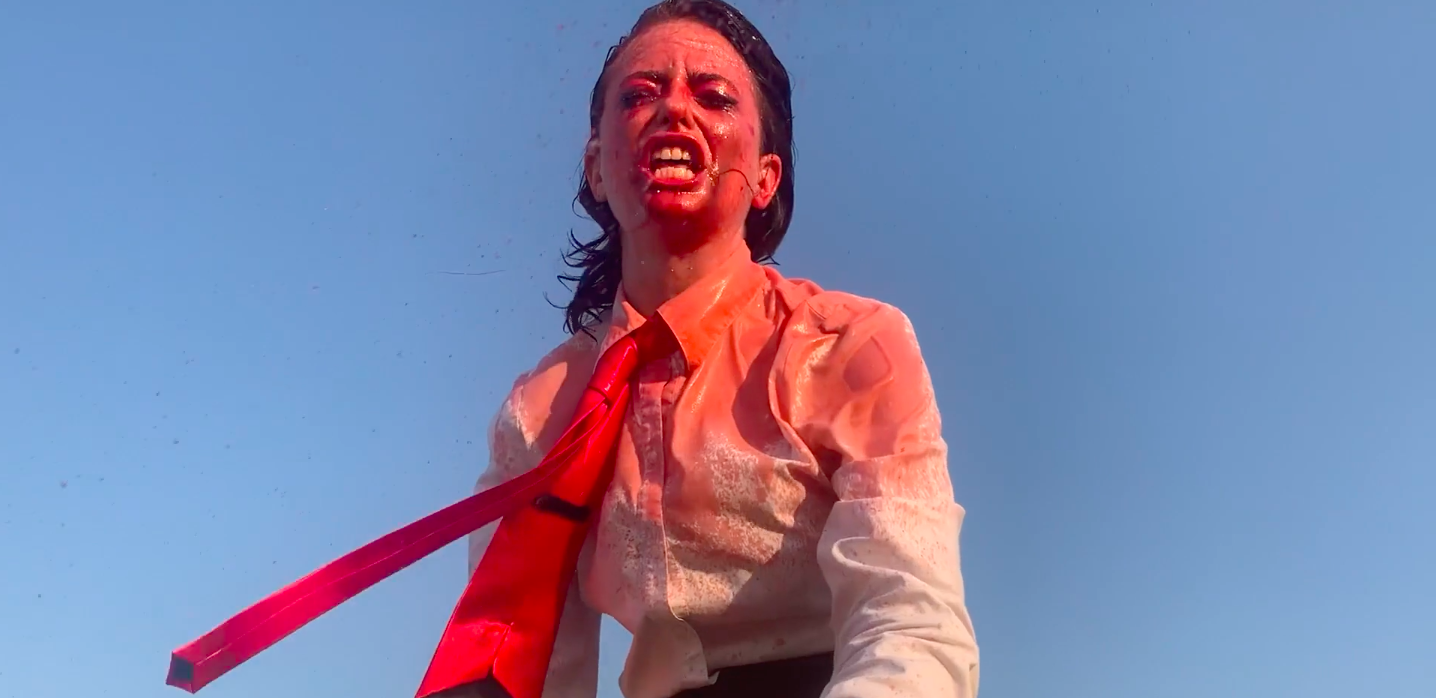Looking at the sheer volume of art online, one would think it easier than ever to find new artists. One would be mistaken. While your Spotify Weekly playlist, YouTube Recommended page, and the Top Picks For [Your Netflix Username Here] each provide the illusion of new experiences, each list is predicated on the eldritch Algorithms that control our content diet. These Algorithms compose their lists based on your demographic information as well as your previous viewing habits, and become more accurate the more one consumes. Starting with the first show you watch with your Hulu account, what you see largely depends on what you’ve already seen. Instead of a vast ocean of artistic exploration, we as consumers navigate a craggy sea of increasingly targeted siren songs. “If you like ‘Lazy Eye’ by the Silversun Pickups,” the voices croon seductively, “you’ll love 2000’s Nu Gaze band My Vitriol.” And in this way, we are all of us dashed again and again, back against the same familiar cultural geography.
One problem with this reality (among many) is its implication for “outsider” artists. For musicians whose work does not lend itself to the Spotify playlist format, or comedians whose material does not generate clicks, or independent filmmakers whose work cannot be presented as several serialized TikToks, how does one find a place to perform; how does one continue to pursue one’s work?
2021’s Weirdo Night, by Jibz Cameron and Mariah Garnett, addresses this concern brilliantly, and does so by obliterating it.
Weirdo Night is a siphonophore: an intricate, diaphanous organism made up of independent, extremely specialized creatures all forming a singular body. In a more literal sense, it’s one of Cameron’s monthly live variety shows (of the same name), captured on film by Garnett and screened at the 2021 Sundance Film Festival. But it’s much more than either of these things.
In a video for online travel publication Atlas Obscura, Jibz Cameron (in character as the host of Weirdo Night, Dynasty Handbag) explains, “each month, every scamp, scallywag, and lesbian east of the 405 gathers together… to enjoy “Weirdo Night,” a veritable cornucopia of revolting, self-indulgent performance art.” The Weirdo Night film’s acts include: a punk band helmed by Patti Harrison in a Hannibal Lecter-medical mask-costume, a song by Morgan Bassichis about all the things you can do in your bathroom, and a comedy routine by Hedia Maron which equally homages Rodney Dangerfield and The Texas Chainsaw Massacre (1974). The nuances of each performance reflect great talent and skill on the part of each performer, and the conceptual originality of each piece is dumbfounding. Cameron’s “vessel,” Dynasty Handbag, is a fearless host, leading the charge in performing all of this incredibly strange material to a pandemic-empty venue. Following the lead of their fearless emcee, the artists embrace their strangest and most potentially alienating ideas. Like any good anthology, Weirdo Night’s component parts could essentially survive on their own, but the beauty is they don’t have to. In the context of performing at “Weirdo Night,” they are united. Weirdo Night is a proverbial island of misfit toys; each act is set apart from established norms by its “weird” qualities, and yet this weirdness allows the act to belong to something which validates it on its own terms.
In the Weirdo Night film, Cameron facetiously claims she found some of the performers through Craigslist ads. In reality, Patti Harrison is a Variety “comedian to watch,” and past shows have featured such acclaimed voices as River Ramirez (Los Espookys, National Lampoon Radio Hour), Cole Escalera (Search Party), and Jack Black (you already know Jack Black). Despite it featuring popular acts, however, its draw is not in celebrity guest appearances. Nor is it the dedicated fanbase. Certainly, in the film, the ambivalent relationship between artist and audience is spotlighted by the fact that there is no audience. Filmed at the height of quarantine in mid-2020, Weirdo Night underscores the necessity of a context in which artists on the fringe can express themselves, irrespective of any concern for audience or conventional marketability. The fact that Weirdo Night has screened at Sundance is immaterial. It does not lend itself to sharing. It’s not on YouTube or Amazon; it’s only available through Vimeo. Weirdo Night is not for everyone. It’s for the self-defined Weirdos.
I must admit that this is, in large part, where my love for Weirdo Night comes from. Any young person searching “how to become a screenwriter” will find countless publications dedicated to changing their work to better fit preestablished industry norms. Any upstart who wants to succeed in music will have to contend with how many likes a song is likely to get. Is it short enough? Does it slap? Is it shareable? The existence of Weirdo Night flies in the face of these notions. It regards conventional notions of artistic success and spits on them, all whilst wearing a leotard. At the heart of Weirdo Night there is a collection of people whose creative voices may well be too unique for the mighty Algorithms to place. And in “Weirdo Night,” they are not only given a home, they are encouraged by its very nature to go as far as they can, to stretch their selfness to its extremes.
The emphasis, therefore, is not on each piece’s functionality or practicability, but on the creative forces behind the entire show. The ostensible disinterest in the audience (in the narrative as well as metanarrative) highlights the purpose of the show—to allow these supremely unique voices to express themselves. It doesn’t matter if the performances fall on deaf ears, or even on no ears. What matters is they happened, and they happened on “Weirdo Night.”
This is what makes Weirdo Night so special. It is a beautiful collection of strange things that are beautiful for their strangeness, sticking together to form something unrecognizable but enduring in this deep, blue sea of culture.


